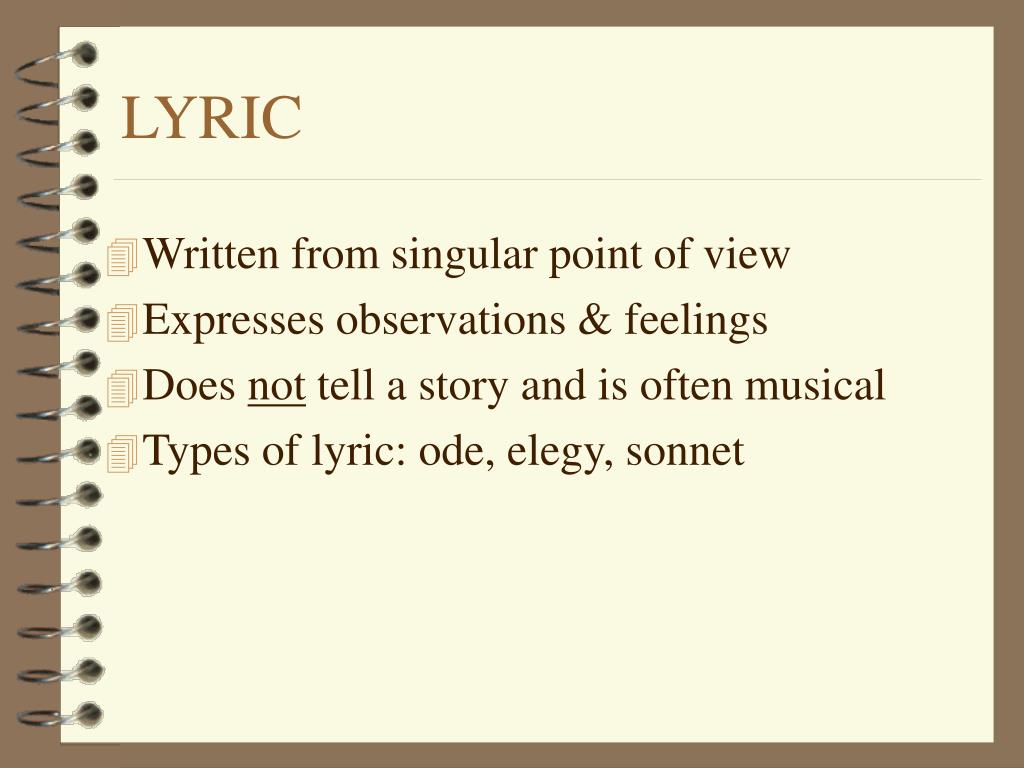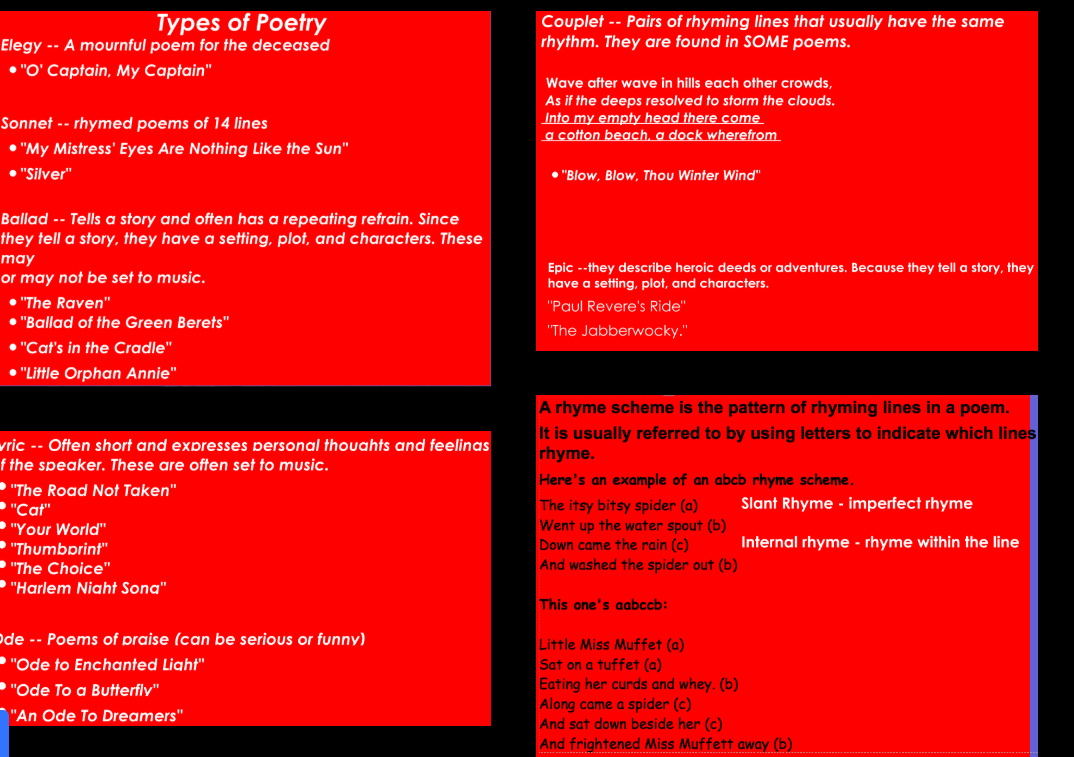

Associated genres of varying synonymity are idyll, bucolic, eclogue, and georgic.Ī puzzling question that relies on allegory or wordplay for its answer. Originally a poem that depicted an idealized singing competition between shepherds, "pastoral" has come to denote almost anything to do with a rural setting, although it also refers to several specific categories of the genre. Poem or song in praise of a particular individual or object. Poetry written with reference to a particular event.Ī long, serious meditation on an elevated subject, an ode can take one of three forms.Ī recantation or retraction, usually of an earlier poem. This genre encompasses a large portion of the world's poetry in general, lyrics are fairly brief poems that emphasize musical qualities.Ĭourtly drama characterized by elaborate costumes and dances, as well as audience participation. Poetry that is mostly for fun: this can mean anything from nonsense verse to folk songs, but typically there is a comical element to light verse. The agricultural cousin of pastoral, a georgic is a poem that celebrates rustic labor. Aesop and la Fontaine are perhaps the most famous fable-writers. Yeats's "Under Ben Bulben.")Ī song or poem that celebrates a wedding.Ī brief tale about talking animals or objects, usually having a moral or pedagogical point, which is sometimes explicitly stated at the end. (See, for example, Thomas Gray's "Elegy in a Country Churchyard" or W.B. Several famous poems end with the poet writing his own. Greek elegiac meter, which is one source of what we know as the elegy today, is not normally associated with loss and mourning.Ī long narrative poem that catalogues and celebrates heroic or historic deeds and events, usually focusing on a single heroic individual.Ī brief and pithy aphoristic observation, often satirical.Ī tombstone inscription. This genre can be difficult to define, as there are specific types of elegiac poem as well as a general elegiac mood, but almost all elegies mourn, and seek consolation for, a loss of some kind: the most common form of elegy is a lyric commemorating the death of a loved one. Originally a description of any kind, "ekphrasis" is now almost exclusively applied to the poetic description of a work of art. Robert Browning was a master of this genre.Ī short pastoral poem Virgil's eclogues are one of the first examples of this genre. The "I" of the dramatic monologue is very distinct from the "I" of the poet's persona.


This might be called a "closet soliloquy": a long poem spoken by a character who often unwittingly reveals his or her hidden desires and actions over the course of the poem.

The term "ballad" applies to several other kinds of poetry, including the English ballad stanza, which is a form often associated with the genre.Ī Renaissance genre characterized by a short catalogue-style description, often of the female body.Ī poem composed entirely of lines from other poems. Representative Poetry Online: glossary with links to full-text poems.Ī narrative with two levels of meaning, one stated and one unstated.Ī song or poem greeting the sunrise, traditionally a lover's lament that the night's passion must come to an end.īroadly speaking, the ballad is a genre of folk poetry, usually an orally transmitted narrative song.The Poetry Foundation: poems listed by glossary term.Note: most definitions of an individual genre will identify famous examples. Links to pages that arrange poems by genre: The New Princeton Encyclopedia of Poetry and Poetics. The following list is a selection of the major genres of poetry. Many poetic genres have a long history, and new poems almost always seek to explore a new aspect of the traditional style and thus to redefine the genre in some way. Whereas a "form" defines the way a poem arranges sounds, rhythms, or its appearance on the page, "genre" is something like the poem's style.


 0 kommentar(er)
0 kommentar(er)
